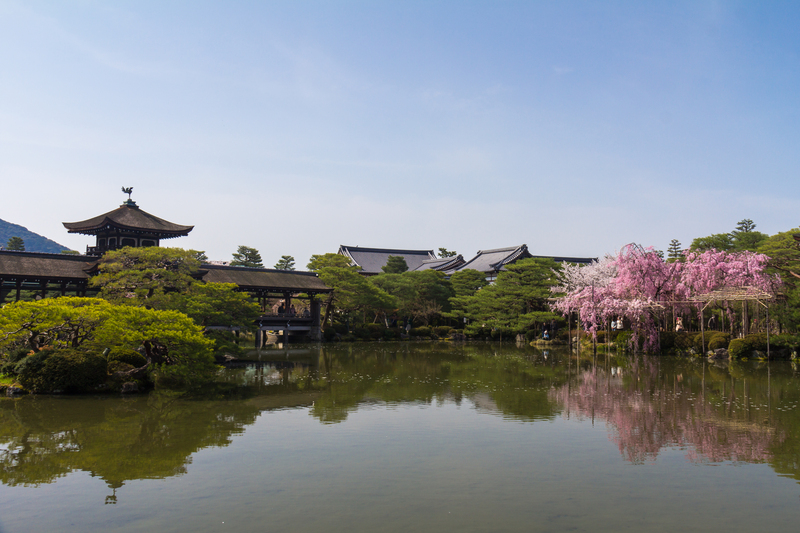Plant the Seeds of Knowledge: 9 Beginner Gardening Tips
Posted on 19/06/2025
Plant the Seeds of Knowledge: 9 Beginner Gardening Tips
Are you ready to nurture your green thumb and watch your garden grow? Gardening is a rewarding and fulfilling hobby, offering fresh air, physical activity, beauty, and even fresh produce. Planting the seeds of gardening knowledge is the key to a thriving and enjoyable garden, especially if you're just starting out. In this comprehensive guide, we'll reveal 9 essential beginner gardening tips that will help you cultivate both your skills and your garden beds.
Why Gardening Is the Perfect Hobby for Beginners
More people than ever are discovering the joys of gardening. Whether you have a sprawling backyard or a small apartment balcony, gardening finds a way into every lifestyle. Starting your own garden brings countless benefits including:
- Reduced stress and improved mental health
- Access to homegrown, organic vegetables and herbs
- Opportunities for gentle physical exercise
- A sense of achievement and creativity
- Helping the environment by promoting bees and other pollinators
Ready to dig in? Let's plant the seeds of gardening knowledge with these 9 beginner gardening tips.

1. Start Small: Choose the Right Space for Your Garden
One of the most common mistakes new gardeners make is starting too big. You don't need acres of land to enjoy gardening; even a window box can spark big growth for your skills. Consider these space-saving options:
- Container gardening: Use pots, buckets, or raised beds if you have limited space or poor soil.
- Vertical gardens: Ideal for balconies and patios, vertical gardening uses trellises, shelves, and hanging baskets to maximize space.
- Community gardens: Join a neighborhood garden plot if you lack outdoor space.
Select a location with plenty of sunlight, easy access to water, and good air circulation. Starting small makes it easier to manage, learn, and enjoy the process.
2. Understand Your Soil Before Planting
The secret to a thriving garden begins beneath the surface. Healthy, nutrient-rich soil supports plant growth and aids root development. Here's how to get your soil garden-ready:
- Test your soil: Home test kits reveal pH and nutrient levels. Most plants prefer a slightly acidic environment (pH 6.0-7.0).
- Add organic matter: Mix in compost, aged manure, or leaf mulch to improve texture and fertility.
- Remove weeds and rocks to make planting easier for your seedlings.
When you plant the seeds of knowledge about soil care, you set the foundation for healthy growth!
3. Select Easy-to-Grow Plants and Seeds
Beginner gardeners should choose hardy, low-maintenance plants to ensure success. Popular easy-to-grow options include:
- Herbs like basil, parsley, mint, and chives
- Leafy greens such as lettuce, spinach, and arugula
- Root vegetables like radishes and carrots
- Sunflowers and zinnias for cheerful blooms
Check the "days to maturity" on seed packets and research which varieties are suited to your climate zone. Starting with "foolproof" plant varieties helps new gardeners build confidence!
4. Learn the Basics of Watering
Plants need water to survive, but more isn't always better. Overwatering is a common problem for beginners. Keep these watering tips close at hand:
- Water early in the morning to minimize evaporation and mold growth.
- Check the soil before watering: Stick your finger an inch into the soil - if it's dry, it's time to water.
- Most vegetables need about 1 inch of water per week, including rainfall.
- Use mulch to retain moisture and regulate soil temperature.
Understanding these basics plants the seeds for lush, thriving garden beds!
5. Give Your Plants the Right Amount of Sunlight
Light is food for your plants. All plants need sunlight, but requirements vary. Here's how to ensure you're providing the right conditions:
- Full sun: Most vegetables and herbs require 6-8 hours of direct sunlight daily.
- Partial shade: Leafy greens and shade-loving flowers can tolerate less sun.
- Observe your space: Track the sunlight in your garden across the day and choose plants to suit the available light.
Tip: If you garden indoors or on a shady balcony, consider grow lights to supplement natural sunlight.
6. Feed Your Garden with the Best Fertilizers
Good soil provides most of the nutrients your plants need, but fertilizers can be helpful, especially when using containers or starting with poor soil. Fertilizing tips for beginners:
- Choose organic fertilizers: Compost, worm castings, or fish emulsion add nutrients without harsh chemicals.
- Follow directions: More fertilizer isn't always better; over-fertilizing can damage plants.
- Fertilize at the right time: Most gardeners apply fertilizer at planting time and again when plants begin to flower or fruit.
Understanding plant nutrition is an important step when you plant the seeds of gardening knowledge for long-term success.
7. Control Pests and Diseases Naturally
No garden is immune to pests or disease, but you can manage them without harsh chemicals. As a beginner, focus on these eco-friendly solutions:
- Encourage beneficial insects: Ladybugs, bees, and praying mantises all help control pests.
- Handpick larger pests: Remove caterpillars or beetles before they do too much damage.
- Use neem oil or insecticidal soap for minor insect issues.
- Rotate crops and provide good air circulation to prevent disease from taking hold.
If you spot yellow, curled, or spotted leaves, consult a local garden center or university extension office for advice. Keen observation is key when learning how to plant the seeds of knowledge in your garden and keep it healthy!
8. Keep a Gardening Journal or Notebook
One of the most underrated beginner gardening tips is to record your activities, observations, and progress. Why?
- Track what you plant, when and where, for better rotation and success in the future
- Note weather patterns, pests, and remedies that worked
- Plan next seasons, noting favorite varieties and layouts
Learning from your own garden journal helps you plant the seeds of knowledge for seasons to come!
9. Be Patient and Enjoy the Process
Gardening is a journey, not a destination. New gardeners often hope for instant blooms and bumper harvests, but nature takes its time. Here's how to keep enjoying your beginner gardening adventure:
- Celebrate small successes, like your first sprout or flower
- Learn from every challenge and set-back
- Share your experiences with local gardeners or online communities
- Involve friends or children - gardening is more fun together!
Patience, curiosity, and a willingness to try new things are the real seeds of gardening wisdom.
Bonus Tips to Help Your Garden Thrive
If you want to build on these nine beginner gardening tips, try these additional strategies to ensure lush growth all season long:
- Mulch your beds: Mulching keeps moisture in and weeds out.
- Practice companion planting: Some plants deter pests or boost growth for their neighbors.
- Label your plants and seeds: Use waterproof markers so you remember what's growing where.
- Invest in quality tools: A sturdy trowel, gloves, and watering can make a big difference.
- Spend a few minutes every day: Quick daily check-ins let you catch problems early.
Frequently Asked Questions for Beginner Gardeners
How much time does gardening require each week?
Once established, a small garden can thrive with just 30 minutes of care a few days a week. Early on, you may spend a bit more time preparing the soil and watering new plants.
What if I only have indoor space?
Indoor gardening is perfect for beginners. Use pots and grow lights for herbs, greens, or even small tomatoes. Windowsills and shelves work wonders for smaller houseplants.
How do I know what will grow in my area?
Check your USDA Hardiness Zone or consult local garden centers. They can recommend seeds and starts that thrive in your climate and advise on planting dates.
What's the best season to start a new garden?
Spring is the traditional favorite for planting seeds and new transplants, but you can garden year-round by choosing appropriate crops or transitioning to indoor or container gardens during colder months.

Conclusion: Plant the Seeds of Gardening Knowledge for a Lifetime of Growth
Starting your first garden is a magical experience. Armed with these beginner gardening tips, you'll avoid common pitfalls, enjoy beautiful blossoms, and harvest delicious homegrown vegetables. Remember:
- Start small and manageable, learn as you go,
- Care for your soil and your plants will thrive,
- Be patient with your progress, and the rewards will bloom all around you.
Are you ready to plant the seeds of knowledge and start your gardening journey? Grab your trowel, gather some seeds, and watch your skills (and your sprouts) grow!
Related Articles and Resources
- Gardening Know How: Tips for Beginners
- Royal Horticultural Society: Beginner Gardening Guide
- The Old Farmer's Almanac: Gardening for Everyone
Happy gardening!
Latest Posts
Efficiently Green: 5 Wallet-Friendly Garden Solutions
Dynamic Hedge Designs for Stunning Outdoor Spaces
Fast-Growing Privacy Hedges for Your Sanctuary

